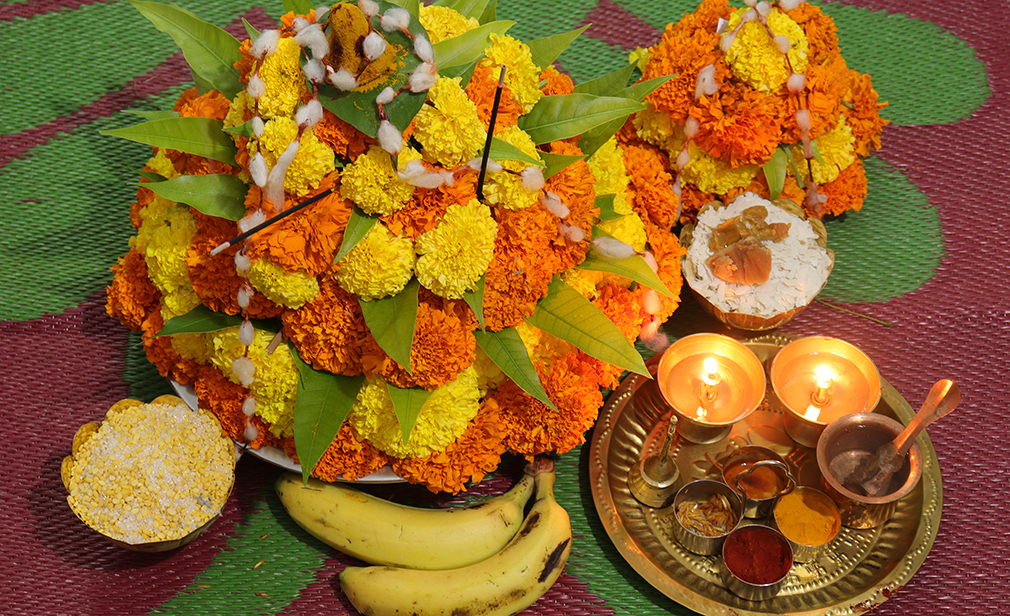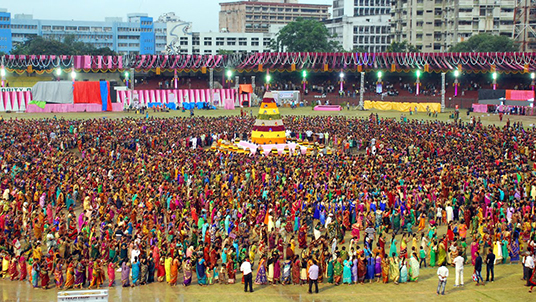Honouring the blessings of natural abundance
Bathukamma is a celebration of the beauty that flourishes in the Telangana region during the monsoon season. As the monsoon rains fill the ponds and tanks of Telangana, wildflowers burst into bloom across the uncultivated plains. The landscape is adorned with colourful 'gunuka,' 'tangedu,' 'banti,' 'chamanti,' and 'nandi-vardhanam' flowers, creating a panorama of unmatched beauty.
Amidst this floral splendour, the festival of Bathukamma, which means the coming alive of Mother Goddess, is celebrated to honour and appreciate the resplendent nature that surrounds the region. It's a time when custard apples, known as 'shilpakka pandlu' or 'sitaphalalu,' and corn, including 'jonna' and 'mokka jonna,' are ripe for the harvest. The custard apple, often called the 'poor man's apple,' thrives in the wild with minimal water, adding to the festival's allure.
Legends and traditions of Bathukamma
Bathukamma is steeped in history and culture, and its roots run deep in Telangana's heritage. The festivities commence a week before the grand 'Saddula Bathukamma,' which precedes Dassera by two days. During this period, women return to their parents' homes to celebrate amidst the vibrant colours of the season.
For an entire week, women create small 'Bathukammas,' playing with them each evening and eventually immersing them in nearby water ponds. On the concluding day, the men of the household venture into the wild plains, gathering armfuls of 'gunuka' and 'tangedu' flowers. These blossoms are meticulously arranged row after row in brass plates known as 'taambalam.' They are arranged in circular rows with alternating colours, resulting in a splendid, growing Bathukamma. The white 'gunuka' flowers are often painted with watercolours, enhancing the circular layers of vibrant 'tangedu' and 'gunuka' blossoms. Bathukamma is then reverently placed before the family deity, and prayers are offered.
As evening descends, women don their most colourful attire, adorned with jewellery, and assemble in a large circle around Bathukamma. They begin singing traditional songs while circling the floral stack, forging a circle of unity, love, and sisterhood.




































